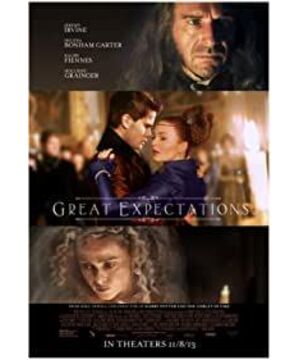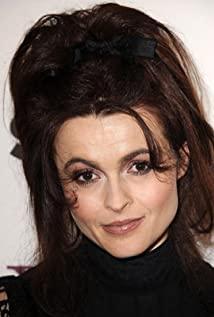Director Mike must have thought that all the audience had read the original work, so he only selected a few important passages, which also made the film rhythm very jumpy, and the character changes and complex character relationships could not be explained clearly. . Pip's way of growing up is actually a step-by-step understanding of love, money, class, as well as human nature and redemption. It is Dickens' interpretation of all of this. The story in the movie, but every part is missing something. It is over before the climax. Leaving us off-screen, we feel a sense of emptiness towards the end credits. In the movie, Pip has an epiphany in the face of life changes and spiritual shocks, which saves all the entanglement and struggle, which makes the embarrassment of being ridiculed, the pain of losing a loved one, and the repentance of starting over not enough to touch The human heart has lost the power of the original text.
The marshes and the Kent countryside where the story begins are peaceful and beautiful, but the protagonist Pip's rapid breathing and footsteps seem so incongruous, and the sudden jump of prisoners hiding in the cemetery breaks the peace and changes Pip. life from now on. Especially after knowing the ending and looking back, I hope that time will pass a little slower, even if there is a poor life and the beatings and scolding of my sister, at least I have no worries about food and clothing, and my brother-in-law's protection. It's just that Pip at that time didn't understand ordinary happiness. In front of the arrogant and beautiful noble lady, he only wanted to become a member of the upper class, and exchanged his "great future" for the favor of his sweetheart, but he didn't know that such a future would ruin him. life. In his "ideal life", the narrow old streets of London make people feel uneasy, the camera is aimed at the filth and chaos of Little Britain, and the so-called "great future" is also concentrated in the exquisite and exaggerated aristocratic costumes and In the seemingly boring gathering of the upper class, this irony should have been the experience of the protagonist after a lot of experience, but it was too superficial and deliberate in front of the camera.
Dickens wrote two endings for "Great Expectations", originally dark and tragic, but under pressure from the publishing house, there is another happy ending as described in the film. Audiences who like romantic love may applaud and applaud, believing that this is true love invincible, but this love with too many impurities is difficult to move everyone. Mike director and screenwriter David Nicholson's choice of ending is also destined to lose some audience approval.
Fortunately, the restoration of the key points of the original book, the exquisite dialogue, the retro British accent and the street scenes with a sense of the times, as well as the performances of Ralph Fiennes and Helena Carter, are also enough to make this movie. Qualified to pay tribute to Dickens. In particular, Pip's confession to Estella is a classic, making the listeners unmoved. Although the appearance of Ralph Fiennes is not many, it is one of the hidden main lines and the mainstay of this tome. Helena Carter is like Tim Burton's "Zombie Bride" and a defeated "Queen of Spades". Although she occasionally feels a little dance, she still presents the pale, thin, mysterious and weird image of a bad woman. Incisively and vividly. And Pip's good friend Herbert is very stealing in many supporting roles, even more vivid and cute than Pip. Whether it is a child or an appearance when he grows up, he can always bring people happy laughter, which also makes the depression The story has a gleam of light.
http://www.1905.com/news/20130422/642228.shtml
View more about Great Expectations reviews











